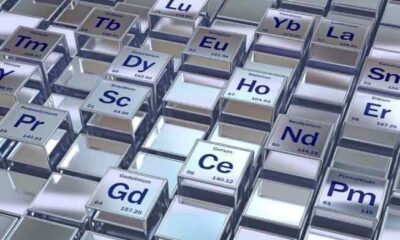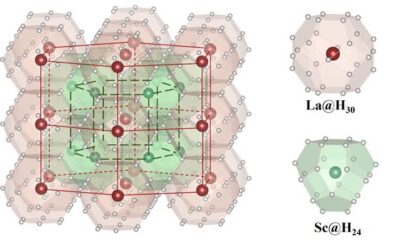Business
Green Tea and Red Wine: Potential Allies in Cancer Treatment

Recent research highlights the potential of two widely consumed beverages, green tea and red wine, in supporting cancer treatment. These drinks are not replacements for established therapies such as chemotherapy or radiotherapy; rather, they may enhance the effectiveness of these treatments and help alleviate their side effects.
Green Tea: A Historical Perspective and Modern Potential
Green tea has been appreciated for centuries, with its roots tracing back to first-century China. Traditionally, it has been valued for various health benefits, including its role in weight management and cardiovascular health. However, contemporary studies are uncovering its potential in fighting cancer. The key component responsible for this is epigallocatechin gallate (EGCG), a powerful antioxidant.
EGCG offers more than just protection against oxidative stress; it targets the energy production processes of cancer cells. Cancer cells thrive by hijacking the body’s normal energy systems, and EGCG disrupts this by attacking the proteins essential for tumour growth and division. This targeted approach not only inhibits cancer cell multiplication but also promotes cell death.
Additionally, early research suggests that EGCG may enhance the efficacy of conventional treatments. By making cancer cells more susceptible to chemotherapy and radiation, it could potentially reduce the required dosages and associated side effects. For those who favour a more concentrated form of green tea, matcha contains higher levels of EGCG due to its whole leaf preparation.
Red Wine: A Unique Mechanism Against Tumours
Red wine, well-known for its health benefits, contains a compound called resveratrol. Found in red grapes, blueberries, and peanuts, resveratrol is noted for its protective effects on the heart, liver, and brain. Its role in cancer treatment, however, is particularly intriguing. Unlike EGCG, resveratrol does not directly target cancer cells. Instead, it disrupts the supportive microenvironment that tumours create, which is crucial for their growth and spread.
Resveratrol enhances the immune system’s ability to identify and attack cancer cells. Furthermore, it plays a vital role in preventing the formation of new blood vessels that tumours require for nutrient supply. By starving tumours of their lifeline, resveratrol contributes to their eventual decline.
The potential of natural compounds to aid in cancer treatment extends beyond green tea and red wine. For instance, apigenin, found in parsley, can slow tumour growth, while curcumin, derived from turmeric, disrupts cancer cell survival. Similarly, emodin, present in aloe vera and rhubarb, shows promise in reducing inflammation and inhibiting cancer proliferation.
Challenges and Future Directions in Cancer Research
Despite these promising findings, one significant challenge remains: many of these natural compounds are poorly absorbed by the body. Researchers are exploring innovative methods to improve the bioavailability of these substances. One approach involves developing enhanced delivery systems, such as using nanoparticles to encapsulate the compounds. This method not only protects the active ingredients but also increases their effectiveness against tumours.
Combining certain compounds, such as piperine from black pepper with curcumin, has shown potential in enhancing absorption. This synergy could lead to more effective cancer therapies that incorporate natural substances.
While the research into these everyday foods and beverages is still in its early stages, the prospect of integrating them into cancer treatment protocols is an exciting development in medical science. As scientists continue to investigate these natural allies, individuals might find that enjoying a cup of green tea or a glass of red wine could contribute positively to their health.
In conclusion, the intersection of traditional dietary practices and modern scientific inquiry underscores an evolving understanding of how common beverages may bolster the body’s defenses against cancer. As this area of research expands, it holds the potential for significant advancements in therapeutic strategies, providing hope to those affected by this disease.
-

 Entertainment3 months ago
Entertainment3 months agoAnn Ming Reflects on ITV’s ‘I Fought the Law’ Drama
-

 Entertainment4 months ago
Entertainment4 months agoKate Garraway Sells £2 Million Home Amid Financial Struggles
-

 Health3 months ago
Health3 months agoKatie Price Faces New Health Concerns After Cancer Symptoms Resurface
-

 Entertainment3 months ago
Entertainment3 months agoCoronation Street’s Carl Webster Faces Trouble with New Affairs
-

 Entertainment3 months ago
Entertainment3 months agoWhere is Tinder Swindler Simon Leviev? Latest Updates Revealed
-

 Entertainment4 months ago
Entertainment4 months agoMarkiplier Addresses AI Controversy During Livestream Response
-

 Science1 month ago
Science1 month agoBrian Cox Addresses Claims of Alien Probe in 3I/ATLAS Discovery
-

 Entertainment4 months ago
Entertainment4 months agoKim Cattrall Posts Cryptic Message After HBO’s Sequel Cancellation
-

 Entertainment3 months ago
Entertainment3 months agoOlivia Attwood Opens Up About Fallout with Former Best Friend
-

 Entertainment6 days ago
Entertainment6 days agoCoronation Street Fans React as Todd Faces Heartbreaking Choice
-

 Entertainment3 months ago
Entertainment3 months agoMasterChef Faces Turmoil as Tom Kerridge Withdraws from Hosting Role
-

 Entertainment4 months ago
Entertainment4 months agoSpeculation Surrounds Home and Away as Cast Departures Mount




















